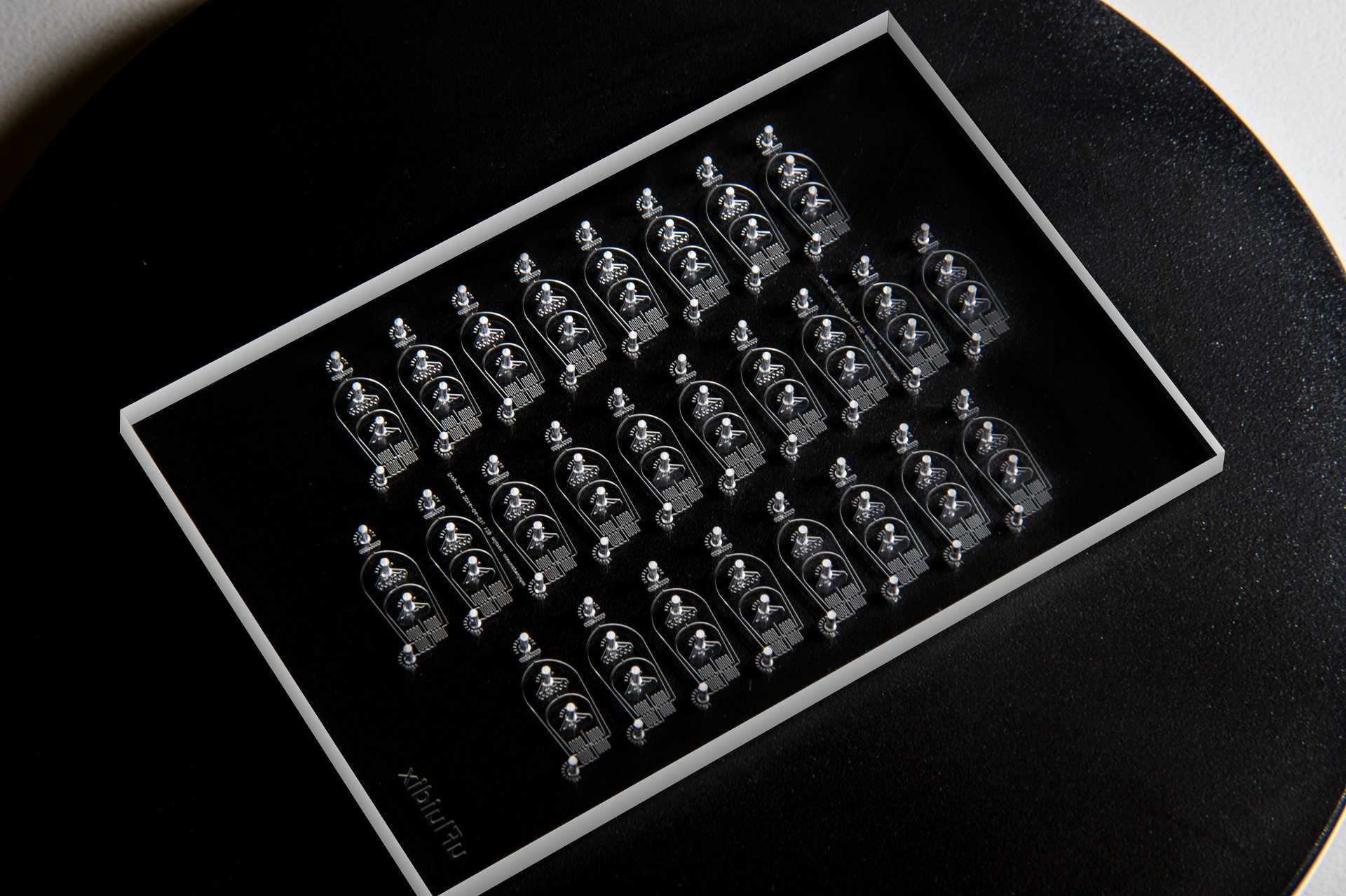
19 Feb Dropseq chips help researchers to study the transcriptional mechanisms of stress-related mood disorder major depression
Recent technological developments including microfluidics have facilitated genome-wide transcriptional profiling in select brain regions. These studies can be employed to discover correlations between altered transcriptional activity across brain regions with stress-related mood disordered leading to a better understanding of the molecular underlying driving mechanisms. Here, in a recent study published in Nature Communications, researchers from the University of Pennsylvania use dropseq chips microfabricated by uFluidix to study the underlying transcriptional mechanisms of stress-related mood disorder major depression.
Abstract
“Although the synaptic alterations associated with the stress-related mood disorder major depression has been well-documented, the underlying transcriptional mechanisms remain poorly understood. Here, we perform complementary bulk nuclei- and single-nucleus transcriptome profiling and map locus-specific chromatin interactions in mouse neocortex to identify the cell type-specific transcriptional changes associated with stress-induced behavioral maladaptation. We find that cortical excitatory neurons, layer 2/3 neurons in particular, are vulnerable to chronic stress and acquire signatures of gene transcription and chromatin structure associated with reduced neuronal activity and expression of Yin Yang 1 (YY1). Selective ablation of YY1 in cortical excitatory neurons enhances stress sensitivity in both male and female mice and alters the expression of stress-associated genes following an abbreviated stress exposure. These findings demonstrate how chronic stress impacts transcription in cortical excitatory neurons and identify YY1 as a regulator of stress-induced maladaptive behavior in mice.”

Dropseq microfluidic chips microfabricated by uFluidix
The abstract is reproduced from Kwon, D.Y., Xu, B., Hu, P. et al. Neuronal Yin Yang1 in the prefrontal cortex regulates transcriptional and behavioral responses to chronic stress in mice. Nat Commun 13, 55 (2022). https://doi.org/10.1038/s41467-021-27571-3 under Creative Commons Attribution 4.0 International License
Read the original article: Neuronal Yin Yang1 in the prefrontal cortex regulates transcriptional and behavioral responses to chronic stress in mice


